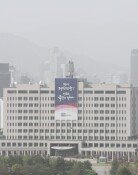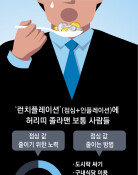Weak in attracting int`l organizations
Weak in attracting int`l organizations
Posted November. 22, 2012 08:16,
In the 1990s, Singapore aggressively attracted the regional headquarters of multinational companies to attract investment and create jobs. In the 2000s, the city-state diversified its targeted organizations to attract foreign investment to include education, medical services, tourism, finance and culture. A Korean businessman told a Dong-A Ilbo reporter in Singapore in 2008, The Singaporean government is striving to attract non-government organizations that are highly effective in bringing in foreigners. As a result of these efforts, Singapore was named the host of the World Wide Fund for Nature`s regional headquarters. This strategy was far more insightful than that of Korea, which sought to attract foreign investment by building industrial complexes and offering tax benefits.
The Korean government on Wednesday announced measures to attract international organizations. Seoul seeks to elevate the nations international stature and attract foreign investment and human resources by bringing in global organizations. The secretariat of the Green Climate Fund, which will set up its home base in Songdo, an international city in Incheon, will have 300 to 500 staff to be constantly stationed there, and will convene more than 100 international conferences yearly. If the number of foreign residents and visitors increase, this could help add jobs related to the industry for meetings, incentives, conferences and exhibitions. This is more effective in generating economic benefits than the Olympics and the World Cup soccer finals, which are one-off events.
Korea is an economic powerhouse ranking among the top 15 economies in the world, and also the 11th-biggest aid contributor to the United Nations. The country, however, has an unimpressive record in attracting international organizations to set up offices. Korea hosts just 43 out of the more than 22,000 secretariats of international organizations, far behind the U.S. (3,646), Belgium (2,194), and France (2,079). In Asia, Korea trails Japan (270), Thailand (133), and Singapore (86). The average number of staff at international organizations in Korea is just 11.3 people, including 1.8 foreigners, except the Green Climate Fund. Certain organizations are only ostensibly international bodies, including the East Asia Inter-Regional Tourism Forum (Chuncheon) and the International Culture City Network (Gangneung), which are operated by provincial governments with their own budgets.
Surrounded by major powers - China, Japan and Russia-, Korea boasts geopolitical location, industrial strengths such as IT and the gaming industry, and experience in economic development, separated nations and green growth as key elements to differentiate itself from other countries in the competition to attract international organizations. Municipal and provincial governments should avoid excessive competition and offering too many concessions in their bid to attract international organizations. Few such bodies will prefer Korea given the limited English proficiency and lack of international clinics and schools. Only after Korea eases regulations in the service sector and improve the residential environment for foreigners will international organizations seek to make Korea home.
Editorial Writer Park Yong (parky@donga.com)







